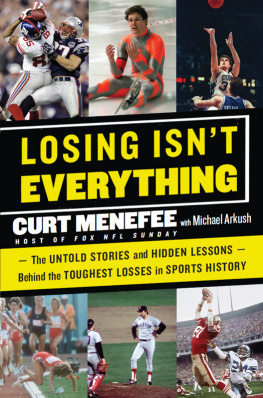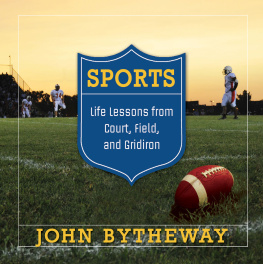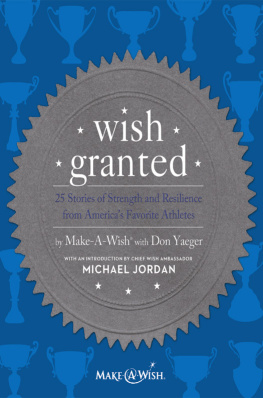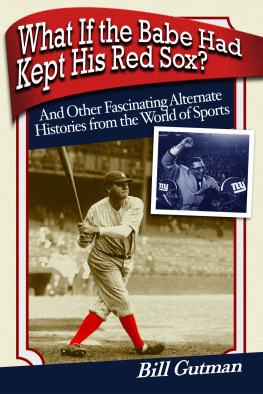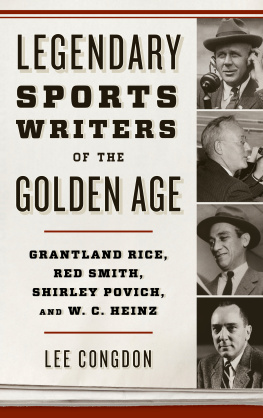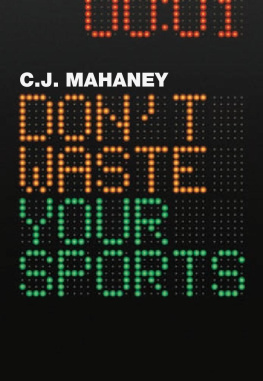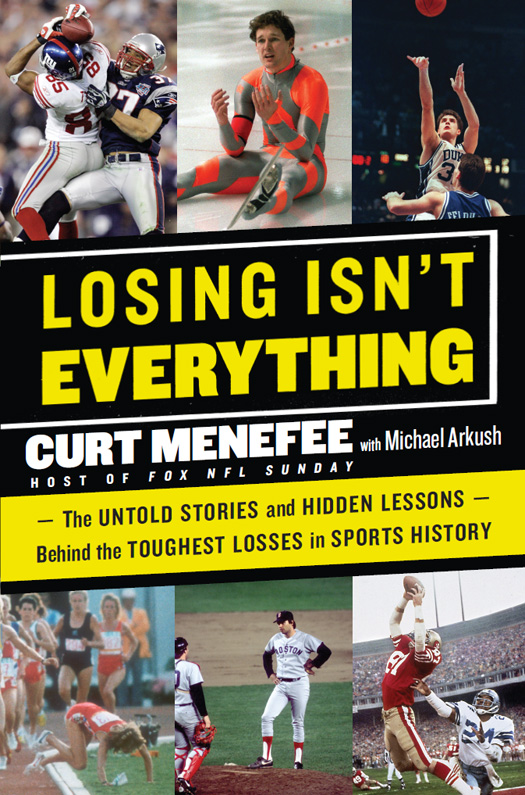Curt Menefee - Losing Isnt Everything: Overlooked Lives and Lessons From The World of Sports
Here you can read online Curt Menefee - Losing Isnt Everything: Overlooked Lives and Lessons From The World of Sports full text of the book (entire story) in english for free. Download pdf and epub, get meaning, cover and reviews about this ebook. year: 2016, publisher: HarperCollins, genre: Detective and thriller. Description of the work, (preface) as well as reviews are available. Best literature library LitArk.com created for fans of good reading and offers a wide selection of genres:
Romance novel
Science fiction
Adventure
Detective
Science
History
Home and family
Prose
Art
Politics
Computer
Non-fiction
Religion
Business
Children
Humor
Choose a favorite category and find really read worthwhile books. Enjoy immersion in the world of imagination, feel the emotions of the characters or learn something new for yourself, make an fascinating discovery.
- Book:Losing Isnt Everything: Overlooked Lives and Lessons From The World of Sports
- Author:
- Publisher:HarperCollins
- Genre:
- Year:2016
- Rating:3 / 5
- Favourites:Add to favourites
- Your mark:
Losing Isnt Everything: Overlooked Lives and Lessons From The World of Sports: summary, description and annotation
We offer to read an annotation, description, summary or preface (depends on what the author of the book "Losing Isnt Everything: Overlooked Lives and Lessons From The World of Sports" wrote himself). If you haven't found the necessary information about the book — write in the comments, we will try to find it.
A refreshing and thought-provoking look at athletes whose legacies have been reduced to one defining moment of defeatthose on the flip side of an epic triumphand what their experiences can teach us about competition, life, and the human spirit.
Every sports fan recalls with amazing accuracy a pivotal winning moment involving a favorite team or playerHenry Aaron hitting his 715th home run to pass Babe Ruth; Christian Laettners famous buzzer beating shot in the NCAA tournament for Duke. Yet lost are the stories on the other side of these history-making moments, the athletes who experienced not transcendent glory but crushing disappointment: the cornerback who missed the tackle on the big touchdown; the relief pitcher who lost the series; the world-record holding Olympian who fell on the ice.
In Losing Isnt Everything, famed sportscaster Curt Menefee, joined by bestselling writer Michael Arkush, examines a range of signature disappointments from the wide world of sports, interviewing the subject at the heart of each loss and uncovering what it meansmonths, years, or decades laterto be associated with failure. While history is written by the victorious, Menefee argues that these moments when an athlete has fallen short are equally valuable to sports history, offering deep insights into the individuals who suffered them and about humanity itself.
Telling the losing stories behind such famous moments as the Patriots Rodney Harrison guarding the Giants David Tyree during the Helmet Catch in Super Bowl XLII, Mary Deckers fall in the 1984 Olympic 1500m, and Craig Ehlo who gave up The Shot to Michael Jordan in the 1989 NBA playoffs, Menefee examines the legacy of the hardest loses, revealing the unique path that athletes have to walk after they lose on their sports biggest stage. Shedding new light some of the most accepted scapegoat stories in the sports cannon, he also revisits both the Baltimore Colts loss to the Jets in Super Bowl III, as well as the Red Sox loss in the 1986 World Series, showing why, despite years of humiliation, it might not be all Bill Buckners fault.
Illustrated with sixteen pages of color photos, this considered and compassionate study offers invaluable lessons about pain, resilience, disappointment, remorse, and acceptance that can help us look at our lives and ourselves in a profound new way.
Curt Menefee: author's other books
Who wrote Losing Isnt Everything: Overlooked Lives and Lessons From The World of Sports? Find out the surname, the name of the author of the book and a list of all author's works by series.

